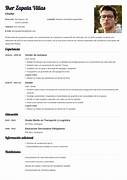- Introduction
A curriculum is a plan for learning. It outlines the topics that will be covered, the skills that will be taught, and the assessments that will be used to measure student learning. A good curriculum is well-organized, comprehensive, and aligned with state standards.
- Core Subjects
The core subjects are the foundation of a good education. They include English language arts, mathematics, science, social studies, and foreign language. These subjects are essential for students to develop the knowledge and skills they need to succeed in college, career, and life.
- English Language Arts
English language arts is the study of reading, writing, speaking, and listening. It is a critical skill for students to develop in order to succeed in school and in life. English language arts instruction should focus on developing students’ fluency, comprehension, and writing skills.
- Mathematics
Mathematics is the study of numbers, shapes, and patterns. It is a foundational subject that is essential for students to develop critical thinking and problem-solving skills. Mathematics instruction should focus on developing students’ understanding of basic concepts, procedures, and problem-solving strategies.
- Science
Science is the study of the natural world. It is a subject that helps students to understand the world around them and to develop critical thinking skills. Science instruction should focus on developing students’ understanding of the scientific process, the laws of nature, and the impact of science on society.
- Social Studies
Social studies is the study of human history, geography, and government. It is a subject that helps students to understand the world around them and to develop critical thinking skills. Social studies instruction should focus on developing students’ understanding of the past, the present, and the future, as well as the role of individuals and groups in shaping society.
- Foreign Language
Foreign language instruction is important for students to develop global awareness and to prepare for a future in a global economy. Foreign language instruction should focus on developing students’ fluency in a foreign language, as well as their understanding of the culture of the target language.
- Other Subjects
In addition to the core subjects, students may also be required to take courses in other subjects, such as art, music, physical education, and health. These subjects are important for students to develop their creativity, their physical fitness, and their understanding of health and wellness.
- Assessment
Assessment is an important part of the curriculum. It helps teachers to measure student learning and to make sure that students are meeting the standards. Assessment can take many forms, including tests, quizzes, projects, and portfolios.
- Conclusion
A good curriculum is essential for a successful education. It provides students with the knowledge and skills they need to succeed in college, career, and life. The curriculum should be well-organized, comprehensive, and aligned with state standards. It should also include instruction in the core subjects, as well as other subjects that are important for students to develop their creativity, their physical fitness, and their understanding of health and wellness.


